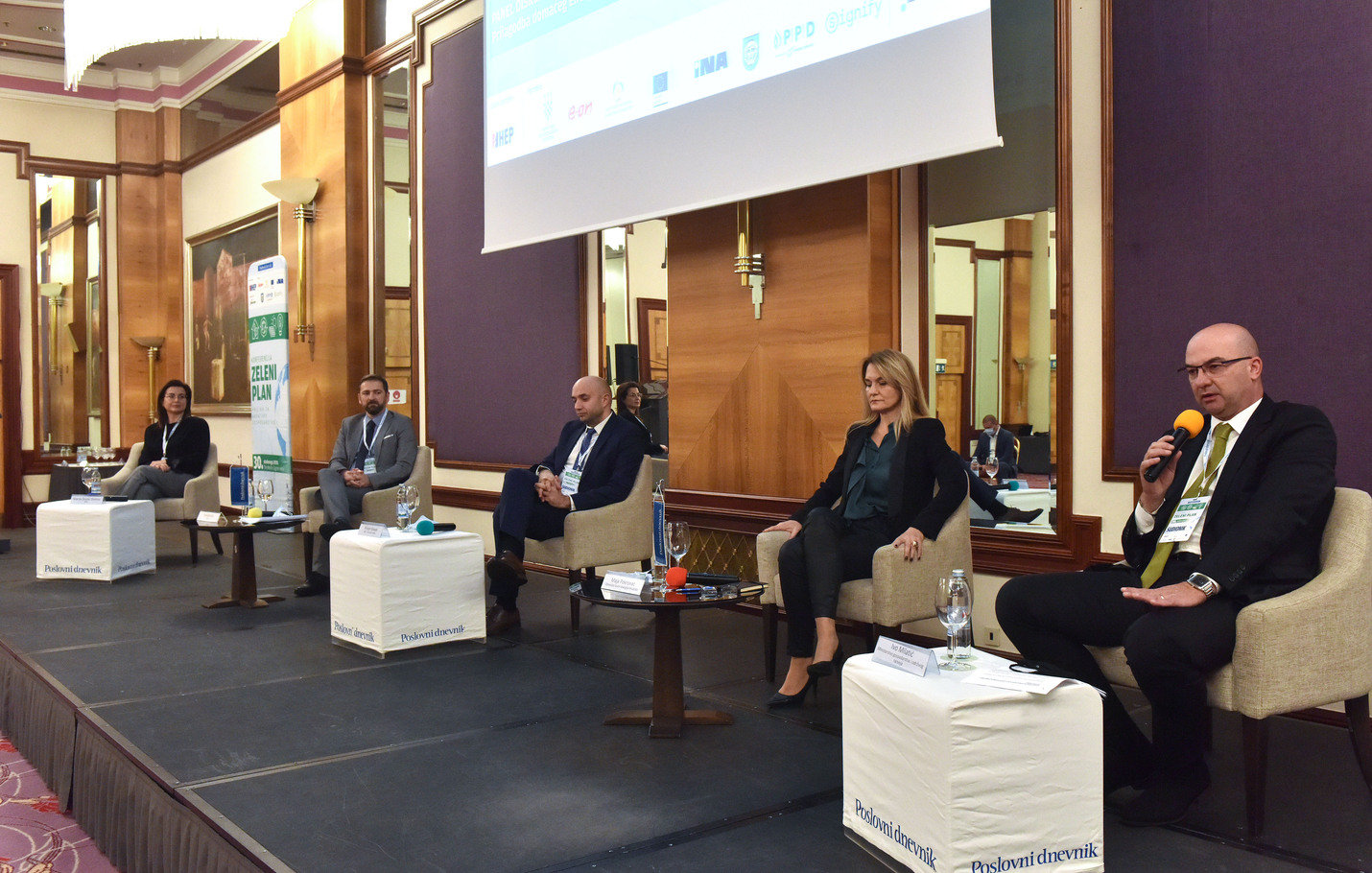30.11.2020.
“This year we have launched 21 public calls worth more than 650 million kunas. They cover many fields, from energy efficiency in the buildings sector, renewable energy sources, smart cities, cleaner transport, etc. For the next month we are preparing the call for proposals for the projects in culture that are not so commercialised. The fact is that our programmes are well accepted and meet with great public response,” said Ilić.He added that transport accounted for a quarter of the overall energy consumption and that there was no way of going back – the mass trend was switching to the green technologies. He warned, though, that this transition would be neither quick nor cheap, nor could it happen overnight, and that it was a process that would take time, but it was a one-way journey towards the energy transition.
At the opening of the conference, it was said that the Green Deal was mainly associated with energy and sustainability, although it covered a much wider area including the transformation of the society, digitalisation, financing, and other fields. Vladimir Nišević, the editor-in-chief of the business magazine Poslovni dnevnik, said that Croatia’s future – both regarding the recovery from the economic downturn caused by the corona crisis and the Green Deal, were closely tied to the European Union, so the Green Deal and its implementation in Croatia was all the more important.
The state secretary at the Ministry of Economy and Sustainable Development Ivo Milatić emphasised that the European Green Deal was a landmark in the energy transformation that presented a number of opportunities for the Croatian economy as well. “Croatia is also vulnerable to the threats brought about by climate change, so we decided to uphold the Green Deal as it doesn’t leave behind any EU member but gives everyone the opportunity for development. We can all expect stricter environmental standards, primarily in terms of reducing CO2 emissions; it is almost certain that the targets will be higher, and we have to adapt to this. We will focus on efficient buildings sector, decarbonised energy sector, and clean transport. For this purpose, the EU will allocate a minimum of 100 million euros in the budget perspective, and at least 30% of the funding from the Next Generation programme, out of EUR 700 billion, will be earmarked for green projects. This whole Covid-19 situation exposed the extent of vulnerability to threats of the energy supply channels, and it was proved again that RES projects are vital and strategic, so they will continue to be the one of the focal points of the Croatian Government,” said Milatić.
The member of the European Parliament Romana Jerković said that we were faced by numerous challenges, but that every crisis should be used wisely as an opportunity for development, and that Croatia had capable individuals, scientists, and businessmen. “I’m optimistic because we have passed the European Climate Pact. However, the Green Agenda is viewed in Croatia as the enemy to technology, although we use digital technologies in important matters, such as afforestation with drones, especially in inaccessible areas, meaning more forests and absorption of carbon dioxide. And digital technologies help us in forecasting metrological events allowing us to prepare for disasters such as floods,” said Jerković.
Other participants in the conference included the CEO and founder of the company Agrivi, Matija Žulj, Andreas Rörig, member of the Management Board at E.ON Hrvatska, the third largest gas distributor in Croatia, who pointed out an important role of digitalisation in the green transition. Maja Pokrovac, director of the association Renewable Energy Sources of Croatia mentioned that domestic share in RES was significant, ranging on average from 40 to 60%.
In the conclusion to the conference, a panel discussion was held on the topic of the Green Deal and branding of the Republic of Croatia as a 100% climate-neutral country, with sustainable tourism as the main corporate advantage.
“As far as the Green Deal is concerned, the plan is to provide for the sustainability of the Croatian tourism, which has to be implemented through investments in the tourist infrastructure in both the private and public sector,” said Siniša Topalović, the managing director and partner at Horwath HTL, adding that beautiful nature was Croatia’s trump card, but that we were treating this natural amenity irresponsibly.









